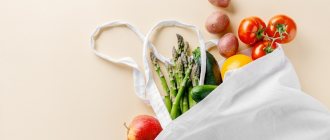Home — For the public
- Map of medical organizations
- Vaccination
- Clinical examination
- Fluorography
- Addresses and opening hours of clinics
- Emergency rooms
- Oncology
- Where to take an HIV test
- Healthy child's office
- Services
- Prevention of CVD
- Disease Prevention
- World Patient Safety Day
- Newspaper "Medical News"
- specialist
- School of Health
— Disease prevention
- HIV infection
- All about vaccination
- All about proper nutrition
- Hepatitis
- Flu
- Dementia
- Schoolchildren's health
- STD
- Tick-borne encephalitis
- Whooping cough
- Measles
- Legionellosis
- Meningococcal infection
- Oncology
- Acute intestinal infection
- Pediculosis
- First aid
- Pneumococcal infection
- Pneumonia
- Prevention of rabies
- Dependency Prevention
- Rotavirus infection
- Diabetes
- Cardiovascular diseases
- Injuries
- Tuberculosis
- Tularemia
- Physical activity
- Obstructive pulmonary disease
- Exotic infections
- Ecology
- Why is swimming in ponds dangerous?
— All about proper nutrition — How many times a day should you eat
All nutrition recommendations are individual and depend on your goals.
Proper eating behavior involves not only controlling how much and what kind of food ends up on the plate. It also includes an understanding of what hours a person should and can afford a snack, how many times a day he should eat, and how to deal with hunger.
Proper nutrition VS diet
Rational nutrition is often contrasted with diet. This is due to the fact that the passion for any restrictive diet is associated with the desire to get the body into better shape by giving up a number of foods and streamlining the regime.
What is the fundamental difference between them?
The stable phrase “go on a diet” stipulates that after achieving results it will be possible to “get off” and return to normal eating behavior. As a result, the person:
- perceives dietary restrictions as temporary;
- does not think that the diet can be harmful;
- agrees more easily to exotic options;
- experiences stress and chooses reward options for patience.
Unlike dieting, nutrition (or nutrition) is a long-term project. It involves a complete change in habits and diet composition and really only works when it becomes part of a new lifestyle. The regime for losing weight on PP and maintaining optimal weight differ only in that when losing weight, the daily need for proteins, fats and carbohydrates changes.
Nutritionists advise recalculating and adapting your diet after losing every 5 kilograms of weight. This is the main feature of proper nutrition: if a person feels good and observes positive external changes in the diet, he can remain on such a menu as long as he likes. This eliminates the need to constantly look for new “working” diets and try strange food combinations to lose weight.
Following a regimen to maintain weight under PN conditions should become the same habit as monitoring your appearance and health.
Calorie content and daily routine
Sufficient calorie intake and frequency of meals protect against hunger. Infrequent nutrition leads to the fact that a person cannot wait for lunch or dinner and either overeats or begins to snack on foods that are not the most beneficial for health and figure.
So, how to plan the daily calorie intake and dietary supplements, the correct diet and drinking regimen - simple advice from a nutritionist:
- It is necessary to calculate the daily calorie intake. It depends on the gender, age, body weight and activity of the person. To do this, use mobile applications or online calculators; A more accurate result can be obtained by contacting a specialist.
- When calculating the BJU ratio, you should “start” from the fact that a person should eat 1 g of protein per 1 kg of body weight. This amount of the nutrient must remain virtually unchanged - the body suffers from both a deficiency and an excess of proteins. In general, the proportion of BZHU should be close to the classic one: 1: 1: 4; in case of “too much”, the caloric content is reduced due to fats and carbohydrates.
- A person should drink at least 35 ml/kg of clean water per day. So a girl weighing 62 kg will need 2170 ml of water. In order not to experience stomach fullness and discomfort, it is enough to divide it into 10-11 doses. The first glass is within half an hour after waking up, before breakfast.
- Breakfast is a must for a healthy diet. Skipping or postponing this meal slows down fat burning, forcing the body to urgently synthesize glucose and release lipids into the blood. Breakfast composition: proteins and carbohydrates. It must be eaten within an hour of waking up.
- During the day, it is recommended to eat up to 5-6 times: three main meals and 2-3 snacks. This frequency of meals helps to avoid overeating, not feel hungry and not be distracted by food during the working day.
- Serving size is about 200 g. This is the optimal amount at which a person will be full until the next meal, but will not feel heavy and regret having overeaten. To estimate the size, use the method of comparing a portion with a palm, a fist, or a handful.
Meal times are calculated individually, depending on the time of waking up and going to bed. Here is a standard proper nutrition schedule for those who get up after 6 a.m. and work 1 shift:
- breakfast – 7:00;
- 1 snack – 10:00;
- lunch - until 14:00;
- afternoon tea – until 16:00;
- dinner – until 18:00;
- evening snack - 2 hours before bedtime.
Proper nutrition requires certain food restrictions. To avoid stress and the subsequent desire to “reward” yourself, you should allow your favorite dishes on the menu, taking into account their composition and calorie content. Their energy value should not exceed 10%-20% of the daily diet.
Snacks and main meals
The similarity between PN and a dietary diet lies in the frequent and fractional consumption of food. This reduces the load on the gastrointestinal tract, liver, and pancreas, and the person constantly receives the required amount of nutrients. During the day, the intervals between meals should be 2.5-3 hours. The percentage of energy in the diet during each meal is also important. Nutritionists recommend allocating up to 5% of your daily calorie intake for each snack. For example, with an estimated value of 1800 kcal/day, 1 snack will be 90 kcal. It could be:
- 2 loaves of bread and 50 g of low-fat cottage cheese;
- a piece of chocolate;
- 1 loaf of bread and a glass of kefir;
- 2 apples.
Larger snacks are irrational, since their main task is to protect against hunger between main meals. “Abuse” of snacks and the insistent recommendation to eat more often in order to “accelerate metabolism” is nothing more than one of the dietary myths. It was born from statistical research as a hypothesis that frequent meals are the key to slimness.
Back in 1997, French nutritionists conducted a clinical study and proved that such a regimen, unlike assessing calories received and expended, does not lead to slimness. But does this mean that you should completely give up snacking? No, extra meals help avoid breakdowns and maintain performance throughout the day.
The optimal distribution of calorie content for main meals is as follows: 25% for breakfast and dinner, 35% for lunch.
Why routine and meal times are important
A person lives according to biorhythms, like any biological system. Academician I.P. Pavlov proved through experiments how the digestive system works, when gastric juice is produced, what happens before and during meals.
These experiments showed that biological rhythms are necessary for the body in order to expend energy efficiently and at low cost.
Human biorhythms are synchronous with the biorhythms of nature. It has been proven that metabolism is especially active in the morning and slows down during the day. And the rhythm of the gastrointestinal tract is very dependent on the diet.
If you eat food at the same time every day, it is digested better, and the process of breaking down macroelements takes place with the greatest efficiency. This is precisely the primary importance of selecting the optimal regimen for a healthy adult and child.
Be sure to look: Rules and recipes for menus for healthy nutrition Rules for compiling and an approximate menu for a week as part of healthy nutrition We create a menu for older people correctly: we take into account the characteristics of the body at 60 and 80 years old Why do students need proper nutrition
Food at work - and let the whole world wait
The transition to a balanced diet is associated with a constant assessment of the composition of products. At first, diet planning is accompanied by calculations of calorie content and dietary fat. This requires abandoning ready-made multi-component dishes and preparing meals yourself.
Traditionally, eating together is used as a way of communication. People who are switching to a healthy diet may worry about how they will look compared to their colleagues. However, fears about the appropriateness of buckwheat or apple during a general tea party often do not reflect reality. Yes, the most common snacks in the workplace are still sweets and fast food, but the growing popularity of healthy eating will make it possible to interest colleagues in new recipes.
When telling how to eat properly at work, nutritionists advise taking prepared foods with you. With a standard schedule, you will need to stock up on 3 servings of food: 1 lunch and 2 snacks. The composition of the basic techniques does not raise questions: soup, meat or fish with side dishes, salads. But among standard snacks, apples appear more often, which are not allowed for everyone: they increase gastric secretion and stimulate appetite.
In weight loss and weight maintenance mode, the following food options are allowed:
- sandwiches made from bread and low-fat cheese;
- bread with fish and herbs;
- homemade marshmallow without sugar;
- fruits: oranges, bananas, pears;
- sliced vegetables with 5% homemade cheese;
- eggs with herbs, vegetables;
- natural kefir or yogurt;
- dried fruits, nuts.
Meal times with proper nutrition
After you have mastered all the rules and purchased the necessary products, you will need to create a schedule where you can schedule proper nutrition hourly:
- Remember that healthy carbohydrates will enter the intestines after 4-6 hours. Therefore, it is better to eat dishes such as cereals, pasta and bread for breakfast so as not to feel hungry longer. Be sure to make your proper breakfast tastier; add fruits, berries, and honey to regular cereals.
- It is advisable to have lunch around 12 o'clock, and the diet should include all types of foods: proteins, fats, carbohydrates. In the middle of the day, be sure to eat the first course and a small lean side dish. Avoid fast food packages, crackers, chips and fast food.
- It is better to have dinner around 5-6 pm with protein foods. It will be digested in the stomach in just 2-3 hours, so it will not disturb your sleep. Prepare lean fish or meat, eat a piece of chicken or a cup of cottage cheese.
- Brine for cabbage
- Propolis for immunity in adults
- Why do hair and ends split? Split ends treatment
Is it possible to eat before bed
Late meals actually worsen the quality of sleep: it becomes more restless. The idea of going to bed with a half-empty stomach is often explained as follows: in 1 hour of sleep, the body spends an average of about 50 kcal. Taking a break from food for 10 hours will allow you to “burn” 550 kcal. If a person eats at night, his body will be busy processing food rather than burning fat.
However, the suggestion “not to eat after 6” has no scientific basis. The myth that every crumb of bread that gets into your mouth in the evening is inevitably deposited on the sides was debunked by Israeli scientists from the Institute of Nutrition. They proved that eating carbohydrates at night does not increase the risk of weight gain.
Answering the question of how many hours before bedtime you can eat, nutritionists say that the total daily calorie intake and energy expenditure play an important role. If a person consumes the required amount of nutrients or is in a slight deficit (up to 20% of calories), he does not gain weight, but maintains or loses weight. The time of dinner in this case does not play a special role, however, the best hours for the main meal are from 17:30 to 18:30, and for a snack at night - 2 hours before bedtime.
Evening fasting with refusal of any food after five or six o'clock in the evening provokes a breakdown with uncontrolled emptying of the refrigerator. Some restriction recommended in a healthy diet really helps people losing weight to control their eating behavior and not go beyond calorie limits.
Proper nutrition is based on taking into account the needs of the body. It develops new healthy habits, reduces the likelihood of relapse and restores health. Self-cooking helps you fully control the composition of dishes, organize meals and snacks at home and at work.
All human systems are tightly interconnected. Normalizing the activity of one of them will entail beneficial changes throughout the body. A person himself makes decisions about what, how much and when to eat, so he can most easily influence his digestive system. By learning to eat properly and developing a culture of eating, a person can get rid of many diseases, strengthen his body and prolong his youth.
Most people view a person's desire for a healthy lifestyle as a whim or as a desire to stand out from the crowd. Therefore, you must be prepared to resist the constant attempts of your family and friends to use every possible means to return you to the feasts familiar to you since childhood. But you also need to understand that this does not happen out of malice or unwillingness to do good to you, on the contrary, it is a loving person who will try to feed you an extra piece. Be grateful for the attention and care, but don’t follow anyone’s lead. Sausages and chips, pasta with meat, cakes, coffee, ham, sausage and cheese sandwiches, calorie booths, etc. and so on. harmful even to a healthy person. And for people with poor health, consumption of such food has a particularly negative effect.
1. First of all, you should remember that you shouldn’t suddenly change your eating habits. You need to learn proper nutrition gradually and with pleasure. A sharp restriction of one or another habitual food can lead to nervous stress and breakdowns. Instead of forbidding yourself to consume your favorite but unhealthy product (sausages, cakes, etc.), allow yourself to eat it more rarely than usual. At first 4 times a week, instead of seven, then even less often. Switch your desire to healthier products. For example, instead of drinking tea with a cake, treat yourself and your loved ones to fruit salads with whipped cream.
2. Food is digested and absorbed much better if it is not very diverse. Traditional Ukrainian tables harm the digestive system not only by overeating, but also by consuming incompatible foods. A mono-diet - one product per meal - helps normalize the activity of the gastrointestinal tract. This doesn't mean you have to eat the same thing all day. This means that you should take a break of several hours between taking incompatible products.
3. A person should eat enough and not suffer from hunger, but it is good to remember that the volume of his stomach in its nature does not exceed 350-450 cm3, and the breaks between meals, if a person does not consume meat products, should be no shorter than 3-4 hours. Eating meat doubles the time between meals.
4. Water or other drinks should be consumed shortly before meals. You should not drink during or after meals.
5. Thorough chewing of food plays an important role in proper nutrition. One of the best healers in Europe and North America, J. Ozawa, said that a healthy person should chew food 50 times, a sick person – 100 times, and a self-improving person – 150 times. It is in the mouth that the conditions for proper digestion of food are created throughout the gastrointestinal tract.
6. Eating “in reserve” is useless and even harmful. Everyone knows the rule: “eat breakfast yourself, share lunch with a friend, and give dinner to your enemy.” Many people have noticed that when they wake up early in the morning and get ready for work, they usually don’t feel like eating. The digestive system wakes up a little later than the person himself. Therefore, it is better to eat for the first time no earlier than 11 o’clock in the afternoon, when the body has finally awakened. In the morning, it is advisable to limit yourself to a glass of warm green tea or herbal tea with a spoon of honey. Honey should only be added to warm tea. Contact of honey with boiling water leads to the destruction of all its beneficial properties and the formation of toxic substances.
7. Another question is whether you should not eat after six (seven) o’clock in the evening. During sleep, the digestive system rests, just like the person himself. Therefore, you should eat food so that it has time to digest before you go to bed. Food digestion time:
— Raw vegetables and fruits – 1 hour.
- Boiled vegetables - 4 hours.
— Carbohydrates (baked goods, pasta, cereals, potatoes, sugar, jam, etc.) take 3 hours to digest.
— Vegetable proteins (legumes, mushrooms, nuts, seeds) – 4-5 hours.
— Animal proteins (meat, fish, sausages, broths, milk, eggs) – 6-8 hours.
The presence of fat, especially in protein foods, increases the digestion time by 2-4 hours.
Greens (cucumbers, peppers, cabbage, radishes, carrots, zucchini, pumpkin, green beans, green peas, corn, herbs) speed up the process of digesting food by 1.5-2 hours.
Unfortunately, the psychological pressure of others, the burden of habits brought up by modern civilization does not allow many of us to take the path of true health. But before you once again succumb to the usual temptation of gluttony, remember that the producers of your favorite delicacies are interested in the purchasing power of their products, and not at all in their nutritional value and not in your health. Try to approach each meal in terms of what is good for your body. So gradually you will learn to distinguish the real needs of your body from the desires dictated by advertising and social habits.











